Akira Kurosawa
Credits

Kakushi toride no san akunin
Writer (Original Film)
Movie
2008

椿三十郎
Screenwriter
Movie
2007

The Sea Watches
Writer
Movie
2002

Doraheita
Writer
Movie
2000

After the Rain
Writer
Movie
1999

Madadayo
Director
Movie
1993

Madadayo
Screenwriter
Movie
1993

Rhapsody in August
Director
Movie
1991

Akira Kurosawa's Dreams
Director
Movie
1990

Akira Kurosawa's Dreams
Writer
Movie
1990

꿈
Director
Movie
1990

Ran
Director
Movie
1985

Ran
Film Editing
Movie
1985

Ran
Writer
Movie
1985
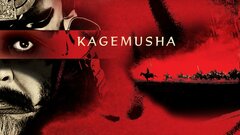
KagemushaStream
Director
Movie
1980

KagemushaStream
Executive Producer
Movie
1980

KagemushaStream
Producer
Movie
1980

KagemushaStream
Writer
Movie
1980

Dersu Uzala
Director
Movie
1975

Dersu Uzala
Writer
Movie
1975

野良犬
Writer
Movie
1973

Dodes 'Ka-Den
Director
Movie
1970

Dodes 'Ka-Den
Executive Producer
Movie
1970

Dodes 'Ka-Den
Producer
Movie
1970

Dodes 'Ka-Den
Writer
Movie
1970
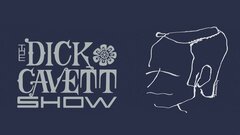
The Dick Cavett ShowStream
Guest
Talk
1968

姿三四郎
Producer
Movie
1965

姿三四郎
Screenwriter
Movie
1965

Red Beard
Director
Movie
1965

Red Beard
Writer
Movie
1965

ジャコ萬と鉄
Screenwriter
Movie
1964

High and Low
Director
Movie
1963

High and Low
Producer
Movie
1963

High and Low
Writer
Movie
1963

殺陣師段平
Screenwriter
Movie
1962

Sanjuro
Director
Movie
1962

Sanjuro
Film Editing
Movie
1962

Sanjuro
Writer
Movie
1962
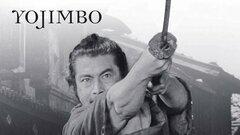
YojimboStream
Director
Movie
1961

YojimboStream
Film Editing
Movie
1961

YojimboStream
Producer
Movie
1961

YojimboStream
Writer
Movie
1961

The Bad Sleep Well
Director
Movie
1960

The Bad Sleep Well
Film Editing
Movie
1960

The Bad Sleep Well
Producer
Movie
1960

The Bad Sleep Well
Writer
Movie
1960

The Hidden Fortress
Director
Movie
1958

The Hidden Fortress
Film Editing
Movie
1958

The Hidden Fortress
Producer
Movie
1958

The Hidden Fortress
Writer
Movie
1958

The Lower Depths
Director
Movie
1957

Donzoko
Director
Movie
1957

Donzoko
Writer
Movie
1957

日露戦争勝利の秘史 敵中横断三百里
Screenwriter
Movie
1957

Throne of Blood
Director
Movie
1957

Throne of Blood
Film Editing
Movie
1957

Throne of Blood
Producer
Movie
1957

Throne of Blood
Writer (Screenplay)
Movie
1957

あすなろ物語
Screenwriter
Movie
1955

ソ満国境2号作戦 消えた中隊
Screenwriter
Movie
1955

I Live in Fear
Director
Movie
1955

I Live in Fear
Writer
Movie
1955
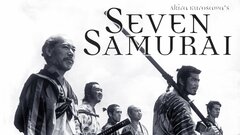
Seven SamuraiStream
Director
Movie
1954

Seven SamuraiStream
Film Editing
Movie
1954

Seven SamuraiStream
Film Editor
Movie
1954

Seven SamuraiStream
Writer
Movie
1954

戦国無頼
Screenwriter
Movie
1952

Ikiru
Director
Movie
1952

Ikiru
Writer (Screenplay)
Movie
1952

Vendetta of a Samurai
Screenwriter
Movie
1952

獣の宿
Screenwriter
Movie
1951

愛と憎しみの彼方へ
Screenwriter
Movie
1951

The Idiot
Director
Movie
1951

The Idiot
Film Editing
Movie
1951

The Idiot
Screenwriter
Movie
1951

殺陣師段平
Screenwriter
Movie
1950

暁の脱走
Screenwriter
Movie
1950

라쇼몽
Director
Movie
1950

라쇼몽
Screenwriter
Movie
1950
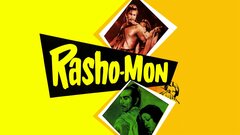
RashomonStream
Director
Movie
1950

RashomonStream
Film Editing
Movie
1950

RashomonStream
Screenwriter
Movie
1950

Scandal
Director
Movie
1950

The Quiet Duel
Director
Movie
1949

The Quiet Duel
Writer
Movie
1949

地獄の貴婦人
Screenwriter
Movie
1949

ジャコ万と鉄
Screenwriter
Movie
1949

Stray Dog
Associate Producer
Movie
1949

Stray Dog
Director
Movie
1949

Stray Dog
Writer
Movie
1949

Drunken Angel
Director
Movie
1948

Drunken Angel
Writer
Movie
1948

L'ange ivre
Director
Movie
1948

The Portrait
Screenwriter
Movie
1948

銀嶺の果て
Screenwriter
Movie
1947

四つの恋の物語
Screenwriter
Movie
1947

Ginrei no hate
Screenwriter
Movie
1947

One Wonderful Sunday
Director
Movie
1947

No Regrets for Our Youth
Director
Movie
1946

No Regrets for Our Youth
Film Editing
Movie
1946

No Regrets for Our Youth
Screenwriter
Movie
1946

Judo Saga II
Director
Movie
1945

Judo Saga II
Film Editing
Movie
1945

Judo Saga II
Screenwriter
Movie
1945

The Men Who Tread on the Tiger's Tail
Director
Movie
1945

The Men Who Tread on the Tiger's Tail
Writer
Movie
1945

Sanshiro Sugata II
Director
Movie
1945

Sanshiro Sugata II
Writer
Movie
1945

土俵祭
Screenwriter
Movie
1944

The Most Beautiful
Director
Movie
1944

The Most Beautiful
Screenwriter
Movie
1944

Sanshiro Sugata
Director
Movie
1943

Sanshiro Sugata
Screenwriter
Movie
1943

Uma
Film Editing
Movie
1941










